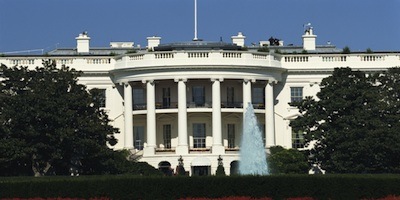
 Church leaders say the Obama administration’s proposed compromise on a recent controversial health insurance mandate is unacceptable.
Church leaders say the Obama administration’s proposed compromise on a recent controversial health insurance mandate is unacceptable.
Bishop Robert E. Guglielmone has joined a growing chorus of religious leaders who object to the mandate as a grave threat to the First Amendment and religious liberty.
A nationwide firestorm erupted after the Jan. 20 announcement by the U.S. Department of Health and Human Services that most health insurance plans must cover FDA-approved birth control, sterilization and abortion-inducing drugs. In response to the outcry, on Feb. 10 the administration announced a compromise.
Religious institutions that object to the services would not have to offer the coverage to employees. Insurance companies instead would have to provide contraceptive coverage free if an employee requests it.
The United States Conference of Catholic Bishops and others say the compromise still would force Catholic employers to violate church teaching and pay for immoral services.
In a Feb. 16 conference call with Catholic media, USSCB general counsel and associate general secretary Anthony R. Picarello Jr. said the conference is “working by every means legally available to us” to get the mandate overturned.
“There are problems of the first order here … foundational principles, religious liberty at stake,” Picarello said. “The bishops can’t relent. They have no choice.”
In a letter sent to parishes Feb. 18, Bishop Guglielmone said the compromise does not solve any problems and was not acceptable.
He said the mandate lacks respect for religious liberty because it allows the government to intrude in church affairs and forces people of faith to cooperate with acts they consider immoral.
Bishop Guglielmone said the new rule also has problems because it appears that organizations that self-insure and religious colleges and universities that offer student insurance will have to offer the objectionable services. Another problem, noted in the bishop’s letter and by legal experts, is the rule provides no conscience exemption for individual business owners, employers and employees who object to the controversial services.
Negative reaction to the mandate also came Feb. 16 in a letter sent to President Obama, signed by 300 leaders in the faith and academic communities who called the mandate a “grave violation of religious freedom,” according to the Catholic News Service. Signers included the president of the Catholic University of America, plus leaders from several different faith groups.
National reaction to the mandate has been mixed. According to a recent survey by the Pew Forum on Religion and Public Life and the Pew Research Center for the People and the Press, 55 percent of Catholics favor exempting religious institutions from the mandate, while 39 percent oppose exemptions.
In general, 48 percent of Americans support an exemption, while 44 percent say all employers should cover contraception. Polls and letters aside, most church leaders see no room for compromise.
“The only two acceptable options are to completely rescind the mandate, which is ideal, or to have a very robust conscience clause,” said Michael Hernon, vice president of advancement at Franciscan University in Steubenville, Ohio.
He said the mandate’s narrow exception for religious groups who mainly employ or serve people of their own faith doesn’t apply to most Catholic entities because of the church’s historic outreach into many facets of society, ranging from education and social services to health care.
“Some people believe freedom of religion is just about the freedom to worship, but the Catholic Church has always been taught to feed the hungry, clothe the naked, to go out into the world,” Hernon said. “Now the government is telling us not to do these things. They’re saying we have to say ‘I’m sorry, we can’t serve you because you’re not Catholic.’”
